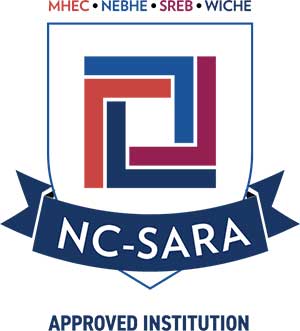State Authorizations
The U.S. Department of Education requires compliance with state regulations of any state in which MGA provides distance education for students. To facilitate this compliance with state regulations MGA has joined the National Council for State Authorization Reciprocity Agreement (NC-SARA).
This agreement allows us to offer distance education to other member states. To find out if your state of residence is a member state before applying to a program with MGA, please visit the NC-SARA website.
For your convenience, there is a dedicated website to answer any questions you may have regarding the availability of a specific program in your state of residence. The website is http://ask.mga.edu.
Potential Consequences of Changing State of Residence
When you are taking courses online, where you live—the place from which you access academic resources, your state of residence—matters. MGA must be authorized (or otherwise allowed) by your state to deliver your academic program to you. The paragraphs above explain where and how the University is authorized. Students who begin an online program while residing in a state in which MGA is authorized to offer online programs need to be aware that moving to a state in which the University is not authorized to offer the program may have negative consequences. While the University attempts to obtain authorization everywhere its students live, moving to a state in which the University is not authorized could result in the loss of eligibility for certain forms of financial aid and/or in the inability to complete the academic program.
Notices
None of our online programs lead to state licensures however the AAS in Aviation Maintenance Technology does lead to federal FAA licensure. The MSN, RN to BSN Completion, and the Respiratory Therapy Bridge programs all require license upon entry.
Accreditation
To learn about MGA accreditation, please visit the institutional SACSCOC Accreditation or the Specialized Accreditation page.
Complaints
Students are encouraged to initially seek an informal resolution directly with the faculty or individual(s) involved when possible. When an informal resolution is not possible, students should follow MGA Complaints Policy and Procedures found on the Student Affairs website. The MGA Grievances/Complaint Policy can also be found in the Student Handbook.
Appeals
If a complaint is not resolved at the institutional level the fully online (out of state) student may choose to elevate their appeal to the GA-SARA office following their guidelines found on their Student Complaint webpage.
GA Nonpublic Postsecondary Education Commission
2082 East Exchange Place
Suite #220
Tucker, GA 30084
770-414-3300
Further considerations and resolutions, if necessary, can be made to our accrediting body, The Southern Association of Colleges and Schools Commission on Colleges (SACSCOC). Guidelines to their Complaint Policy can be found on their webpage.
SACSCOC
1866 Southern Lane
Decatur, GA 30033
404-679-4500

